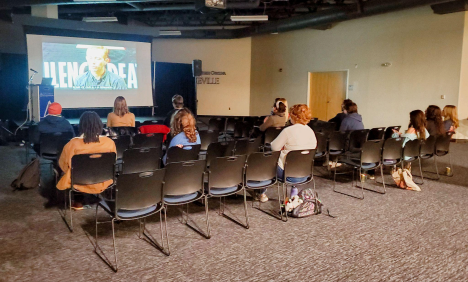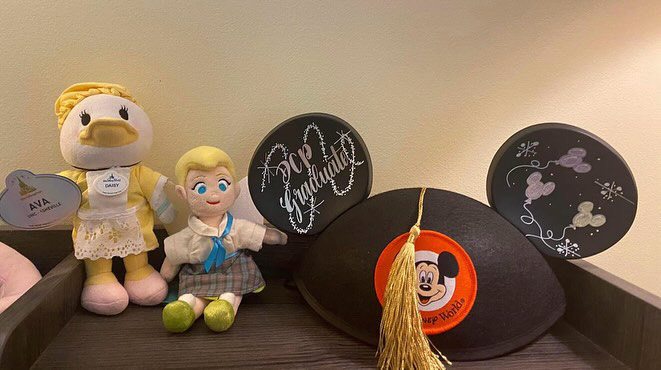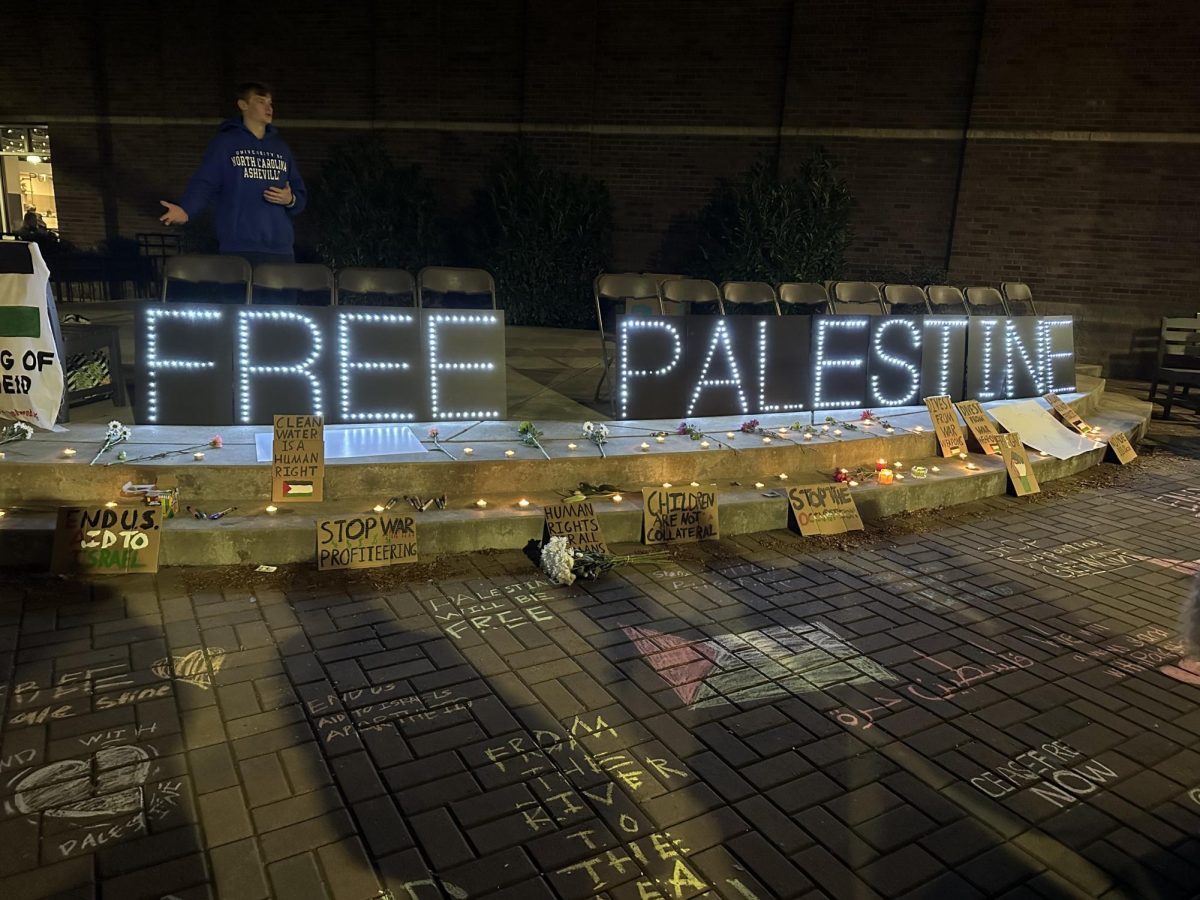UNC Asheville’s Dignity Journal editors encourage human rights conversations with their annual film festival.
“We really do believe human rights isn’t limited to just a political sphere. It can be seen through a lot of different angles,” said Student Government Vice President and Assistant Editor for Dignity, Liv Barefoot.
“We wanted to make sure that there’s a space created where we can not only watch human rights through different mediums, whether that’s documentaries, dramas, different film mediums but then also come together to have a conversation afterwards, to open up the floor, to get a bunch of different reactions and personal experiences that might relate to those kinds of issues that we’re talking about and seeing,” Barefoot said.
The festival lasts four weeks, and Dignity shows one film each week. After each showing a faculty member relevant to the topic of the film facilitates a discussion with the audience.
“We’re looking for how we can experience human rights and analyze human rights from a lot of different perspectives, whether that is from like a philosophical, whether that is from like a political, whether that is from like different like literature standpoints,” Barefoot said.
The UNCA chapter of Amnesty International started the festival in the 2000s and Dignity Journal took over as the organizers last year.
“I don’t foresee this ending anytime soon. As long as there’s people working on the Dignity editorial board, I think it will keep going as long as we have the resources and abilities to do it,” Barefoot said.
“I think it helps a wide range of audiences,” Barefoot said. “It might be really impactful to certain communities on campus, especially marginalized or underrepresented communities.”
The festival attracts a wide range of ages, from young kids, to students, to faculty and other adults.
Barefoot said the attendance of each showing varies from five to 30 guests, depending on the topic of the film and other circumstances such as if an instructor is offering extra credit for their students to go.
“(Students) should come because this is a really great space to have interdisciplinary perspectives and conversations on human rights. You’re going to have professors who are also interested in having these conversations and like asking thought-provoking questions,” Barefoot said. “Just really trying to get people to think more deeply about it, more critically about it, and also just share their perspectives.”
Each film covers a different topic, with the first showing being focused on environmental racism.
“They’re not just environmental issues, they’re not just social justice issues, but they’re also economic issues, and the way that those things intermingle with politics and policy, that’s the heart of what I teach,” said Chair of the Economics Department and Economics Instructor at UNCA, Leah Mathews.
Dignity chose Mathews to facilitate the audience discussion after the first showing.
Mathews said people are really good with data and analysis, but are bad at storytelling.
“Why people care about something really has to do with the story and the human element,” Mathews said.
Mathews teaches Economics of Food and Land Economics at UNCA. Mathews said the classes teach many different ways economics can be used to enhance or promote your advocacy.
“Without understanding how things are connected together, we’re never going to move forward with any resolutions,” Mathews said. “The bottom line is that if we don’t have policies in place that require people who are creating these harms that are spreading to other people, then our markets are not doing their job. They’re just flat-out failing,”
Aidan Tepfer, a co-editor-in-chief of Dignity Journal and senior at UNCA, said they have no regrets joining.
“(Students) should care about dignity because human rights issues are not just for postgrad, Ph.D. student academics. It’s not just for large international institutions, it’s for undergrads, it’s for young people. It’s for people who care about abuses, people who care about human rights policies, people who care about the material conditions of their communities and the people around them, and we want to give them a space to say those things,” Tepfer said.
UNCA students founded Dignity Journal in 2020. They are now publishing one volume per semester featuring research papers, poetry, visual arts, short creative works and writing projects. Their most recent volume features three poems and three visual arts pieces. Tepfer said everything is student-submitted.
Tepfer said there are many reasons that students should submit their work to Dignity.
“For one, it’s good exposure. It looks good to have these published, but also it’s good experience to go through a process where you’re getting peer-reviewed edits,” Tepfer said.
Students can submit to Dignity at dignityjournal.com.
“The wide strategy is trying to garner more submissions from outside of UNCA, outside the UNC system and just trying to grow into a larger journal,” Tepfer said.
























